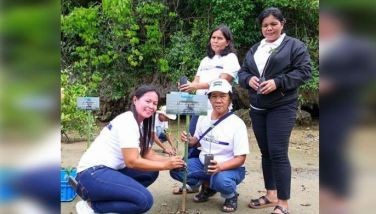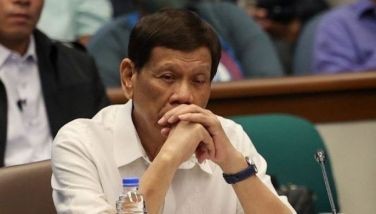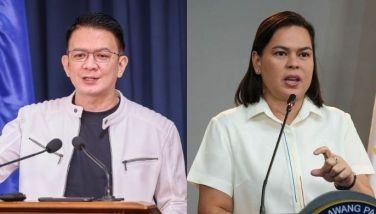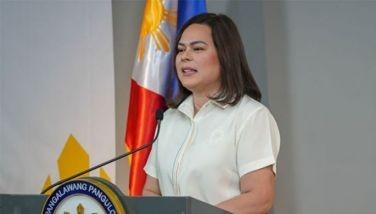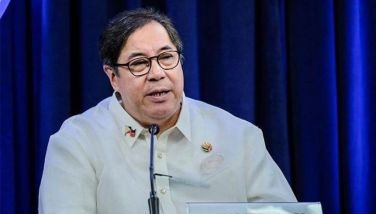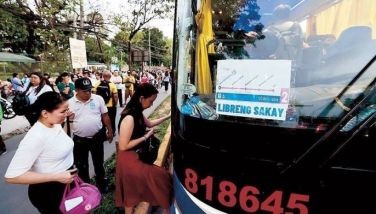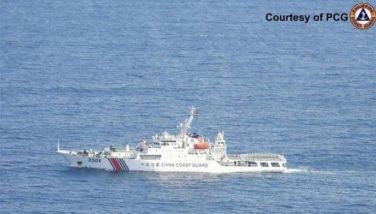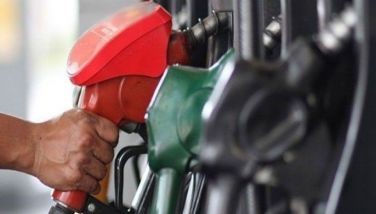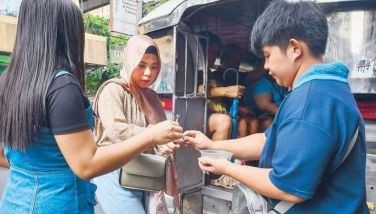Arrests during community quarantine? DOJ says only for assault, bribery, slander
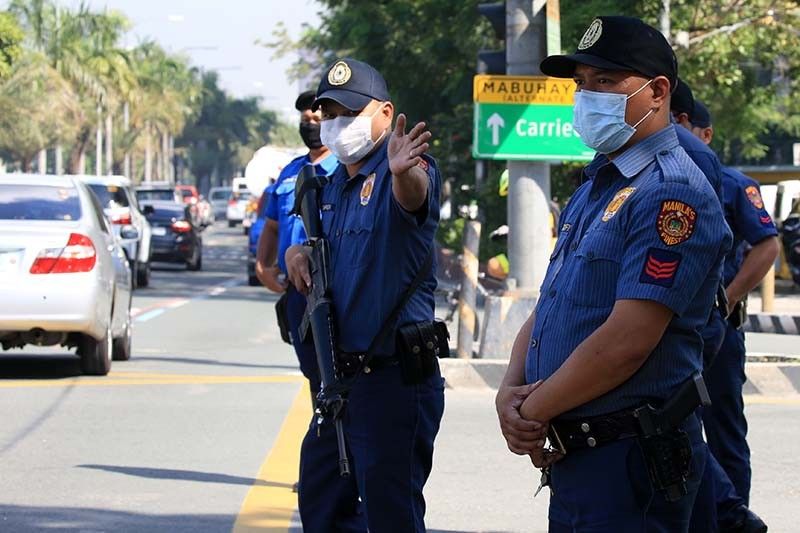
MANILA, Philippines — Aside from the worry brought by the risk posed by the novel coronavirus (COVID-19) and the anxiety of the impending lockdown because of it, another cause for concern: The threat of arrest for violating the quarantine.
Come midnight March 15, up to 40,000 police will man the National Capital Regions’ borders, and the regional police director, Police Maj. Gen. Debold Sinas said Friday: “If the guidelines have already been passed and it’s been disseminated, those who will violate will be arrested.”
Violation of a lockdown is not among the prohibited acts listed under Republic Act 11332, which includes the power of the president to declare a State of Public Health Emergency.
Sinas said that they will look into violation of the Quarantine Law and other applicable cases in the Revised Penal Law that can be filed against the violators of the lockdown.
The Quarantine Law of 2004, Republic Act 9271, provides: "Regulations prescribed under this section shall provide for the apprehension, detention or surveillance for the purpose of preventing the introduction, transmission or spread of such public health emergencies of international concern as may be specified from time to time in Department Orders by the Secretary of Health upon the recommendation of the international health surveillance."
The law also authorizes the Bureau of Quarantine to conduct measures like "advisories, inspections, fumigation, disinfection, pest extermination, vaccination for international travel, [and] medical examination of aliens/foreigners for immigration purposes."
'No such crime'
Human rights lawyer Chel Diokno pointed out that “police cannot just arrest because of violation of health emergency measures.”
In a series of tweets, the human rights lawyer explained in a mix of English and Filipino: “The PNP cannot arrest and detain you for violating public health emergency measures. They can stop you and bar your entry, that is just right if needed, but they cannot arrest and detain you because entering Metro Manila is not a crime.”
Justice Secretary Menardo Guevarra had a similar stance. He told reporters that “law enforcement agents can physically prevent actual movements (entry into or exit from Metro Manila), unless covered by the exceptions or on highly justifiable grounds.”
But can they be arrested and detained? Only when there are other violations, said Guevarra.
“No. Just being physically prevented from entering or exiting. But if the person assaults the law enforcement agent, or slanders him, or bribes him, then that’s cause for warrantless arrest,” he added.
RELATED: Metro Manila quarantine: Travel only to get supplies and for work
Metro Manila lockdown
President Rodrigo Duterte placed Metro Manila under community quarantine for a month, starting March 15, as he raised Code Red Sublevel 2 over the novel coronavirus disease (COVID-19) outbreak.
The travel restrictions in the capital region came three days after Duterte declares a state of public emergency.
Under Duterte’s declaration, the Department of Health may call upon the Philippine National Police “and other law enforcement agencies to provide assistance” in addressing the threat of the virus.
Asked by Philstar.com if the role of the national police under the public health emergency would include enforcing quarantines and assisting with contact tracing measures, Health Secretary Francisco Duque III in a text message said that "both may be done with them if warranted."
Placing the country in a state of public health emergency, however, does not mean a suspension of the privilege of the writ of habeas corpus — the Constitution holds that this can only be done “in case of invasion and rebellion.” The writ is a protection against warrantless arrests.
Curfews proposed
A few hours before the NCR closes its borders, the Metro Manila Council announced that 17 mayors unanimously agreed to a resolution that says they will pass ordinances that set a 8 p.m. to 5 a.m. curfew.
Metro Manila Development Authority general manager Jose Arturo Santillan Garcia Jr. announced this in a streamed press conference.
He said that the mayors aimed to place their respective cities under curfew midnight on Sunday, March 15 to April 14, subject to daily review.
But those “responsible for essential tasks” such as medical professionals, food delivery and grocery and supermarket personnel will be exempted from this.
Hours later, the DILG however clarified the Metro Manila resolution is only recommendatory and LGUs are only urged to pass or amend curfew ordinances.
Only, city and municipality mayors—and not the MMDA—also have powers over the police.
Can you be arrested for curfew violations? Guevarra says no
In the same presser, Interior and Local Government Chief Eduardo Año said that those who would be caught breaking the curfew may face arrest.
Año was quoted as saying in an ABS-CBN report: “Sisitahin ‘yan. In case of doubt, papauwiin talaga ‘yan. Kung mag-resist siya, aarestuhin siya. Gano’n lang siya kasimple.”
(They will be warned. In case of doubt, they will be told to go home. If they will resist, they will be arrested. That’s how simple it is.)
But Guevarra said: “No arrest can be made if there will be no ordinance from LGU.”
As of Saturday afternoon, no LGU resolution on a curfew because of the community outbreak has been made public. Ordinances are crafted by the local government lesgislature and approved by the local chief executive. In the case of Metro Manila, those are the mayors.
The City of Manila, in September 2019, has City Ordinance No. 8547 that prohibits minors from loitering and wandering in public areas within the Philippine capital from 10 p.m. to 4 a.m. This was issued, however, for protection and disciplining children.
RELATED: Manila to re-implement curfew for minors
The imposition of curfew reaped strong criticism from social media users who made comparisons to the period of martial law.
But Guevarra stressed: “We are not in a state of martial law.”
He said that the country is fighting a deadly virus, and the “the PNP, assisted by the AFP, will be on the streets not to sow fear but help each other until this public health emergency is over.”
“So let us please cooperate and help each other until this public health emergency is over. This is phenomenon that is happening not only in the country but also elsewhere in the world,” he added.
Philippine courts are open and serving with skeletal workforces amid the lockdown in Metro Manila. Inquest proceedings also continue, and an assigned prosecutor on a rotation basis remains at the National Prosecution Service.
Related video:
- Latest
- Trending
















